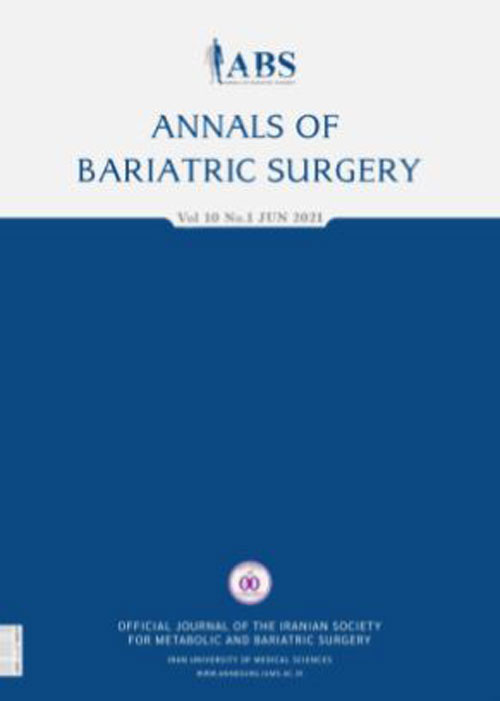Laparoscopic Versus Conventional Surgery for Hepatic Hydatid Disease: A Comparative Study
Author(s):
Article Type:
Research/Original Article (دارای رتبه معتبر)
Abstract:
Background
laparoscopic treatment of hepatic hydatid disease has undergone revolution in parallel to progress in laparoscopic surgery. Controversies about the role laparoscopy in the management of liver hydatid cyst have not been resolved because of scarce experience worldwide.Objectives
The aim of our study was to compare surgical outcome of laparoscopic approach with open surgery for the management of hepatic hydatid disease.Methods
It was a retrospective and prospective study conducted in the department of surgery SKIMS Srinagar over a period of eight years from January 2008 to January 2016 in Sheri Kashmir institute of medical sciences Srinagar India, Srinagar. The study included all the adult patients admitted with a diagnosis of hepatic hydatid disease and the total number of patients studied was 80. All patients were pre-operatively and post- operatively treated with Albendazole. The patients were alternately taken either for laparoscopic approach or for open approach. For data that was included retrospectively patients were enrolled in either groups based upon the type of surgery they had undergone. Patients were followed for any recurrence for a period ranging from one year to six years with an average follow up period of 24 months. All the data was entered in detailed proforma and analysed.Results
Mean age of presentation was 40.27 years in open group and 38.80 years for laparoscopic group. Majority of patients (55%) presented with pain abdomen. Mean operative time was 60.43 minutes in open group and 89.80 min. for laparoscopic group. Two patients (5%) from the laparoscopic group had to be converted to open. In laparoscopic group mean hospital stay was 3.40 days while in open group it was 8.73 days. Mean time to return to work was 8.10 days in laparoscopic group and 20.70 days in open group. In laparoscopic group none of the patients had surgical site infection while as in open group 4 (10%) had surgical site infection. In laparoscopic group, biliary leak was seen in 3 (7.5 %) patients, while in open group it was seen in 2 (5%) patients. Recurrence was seen in 2 (5%) patients who underwent open surgery, while as recurrence was not seen in any of the patients who underwent laparoscopic surgery.Conclusions
Based on our encouraging results from our current study, we conclude that laparoscopic hydatid surgery is safe and feasible for selected patients in which criteria is met, motivated primarily by lower post-operative morbidity, mortality and recurrence.Keywords:
Language:
English
Published:
Annals of Bariatric Surgery, Volume:6 Issue: 4, Autumn 2017
Page:
2
magiran.com/p1804197
دانلود و مطالعه متن این مقاله با یکی از روشهای زیر امکان پذیر است:
اشتراک شخصی
با عضویت و پرداخت آنلاین حق اشتراک یکساله به مبلغ 1,390,000ريال میتوانید 70 عنوان مطلب دانلود کنید!
اشتراک سازمانی
به کتابخانه دانشگاه یا محل کار خود پیشنهاد کنید تا اشتراک سازمانی این پایگاه را برای دسترسی نامحدود همه کاربران به متن مطالب تهیه نمایند!
توجه!
- حق عضویت دریافتی صرف حمایت از نشریات عضو و نگهداری، تکمیل و توسعه مگیران میشود.
- پرداخت حق اشتراک و دانلود مقالات اجازه بازنشر آن در سایر رسانههای چاپی و دیجیتال را به کاربر نمیدهد.
In order to view content subscription is required
Personal subscription
Subscribe magiran.com for 70 € euros via PayPal and download 70 articles during a year.
Organization subscription
Please contact us to subscribe your university or library for unlimited access!


